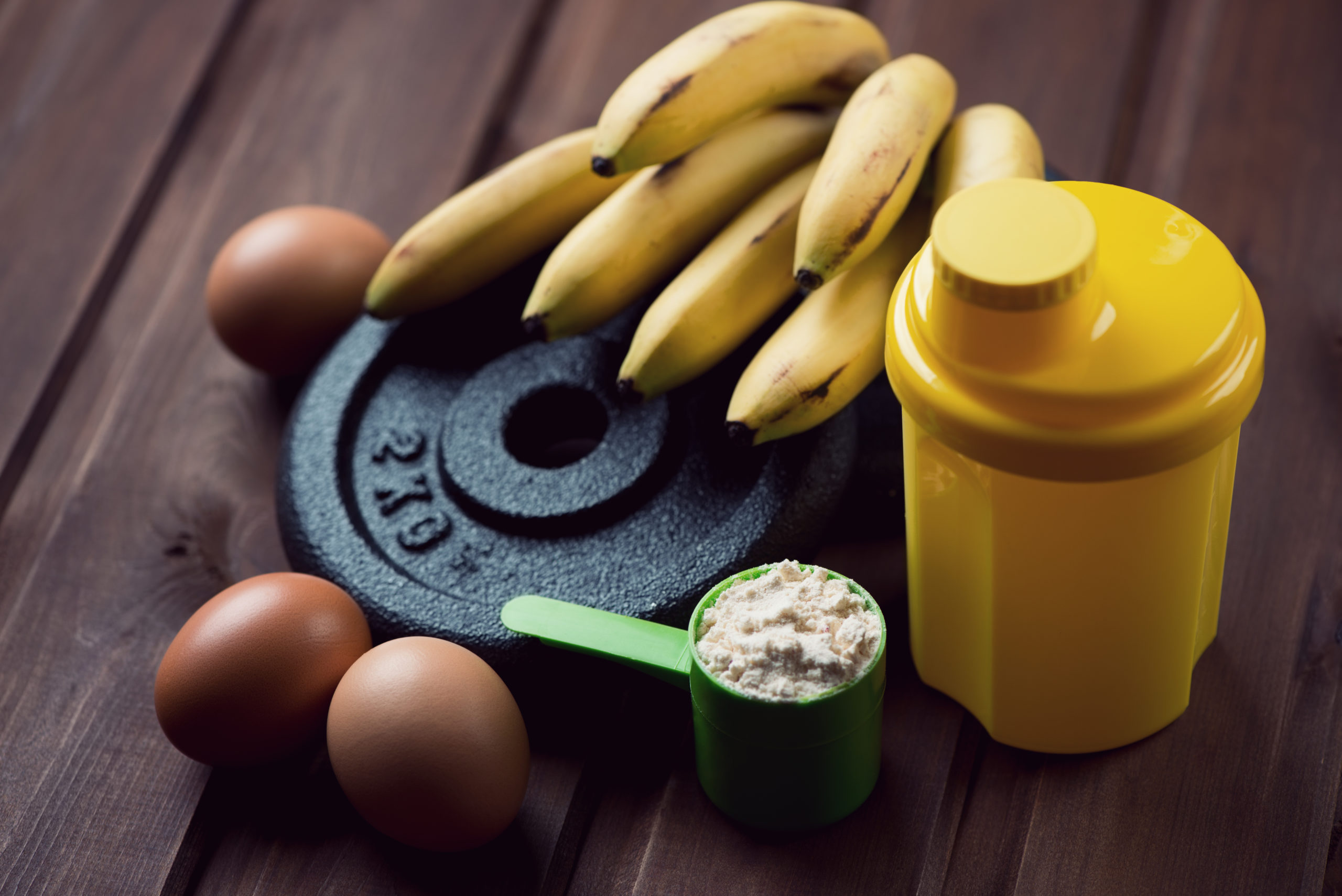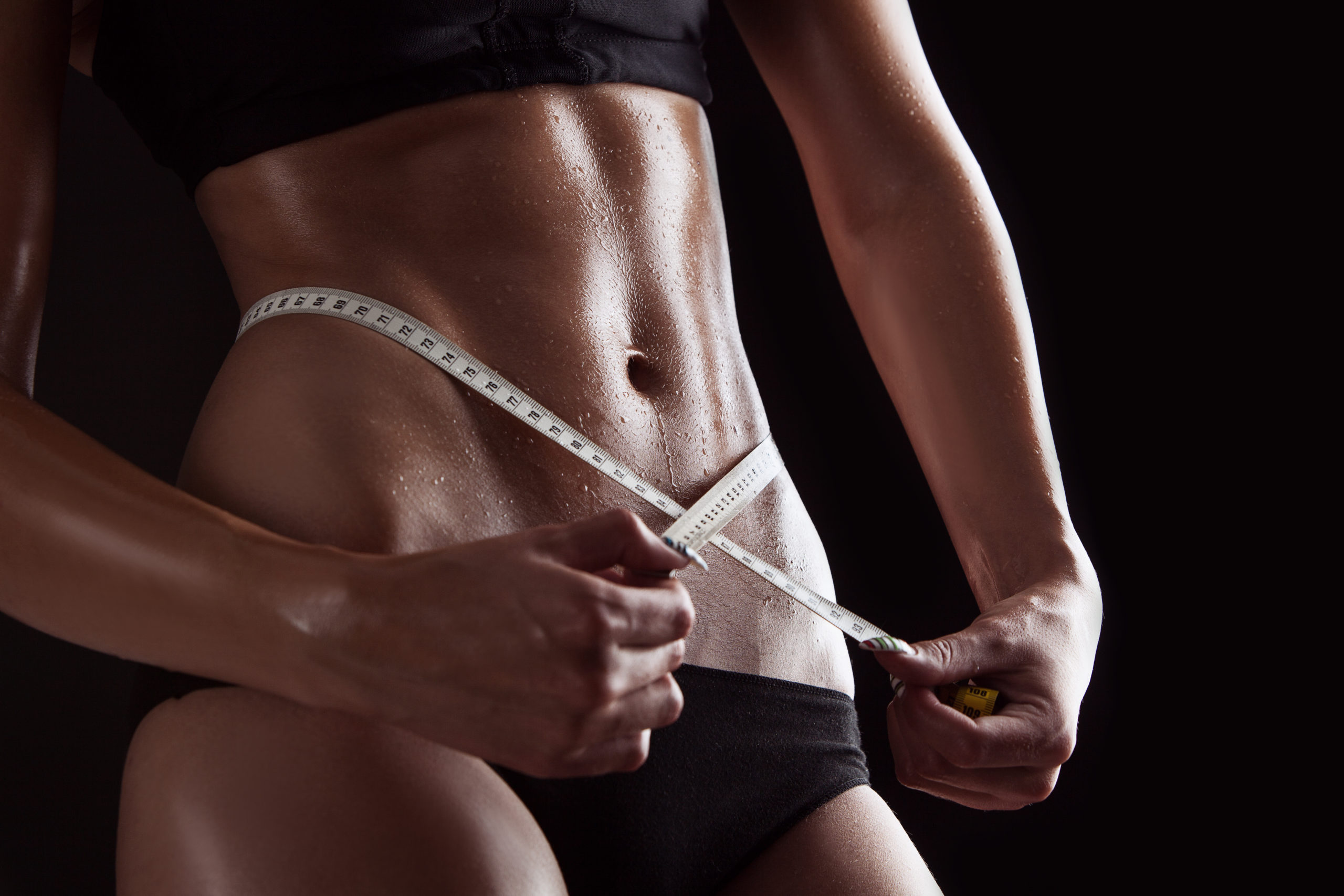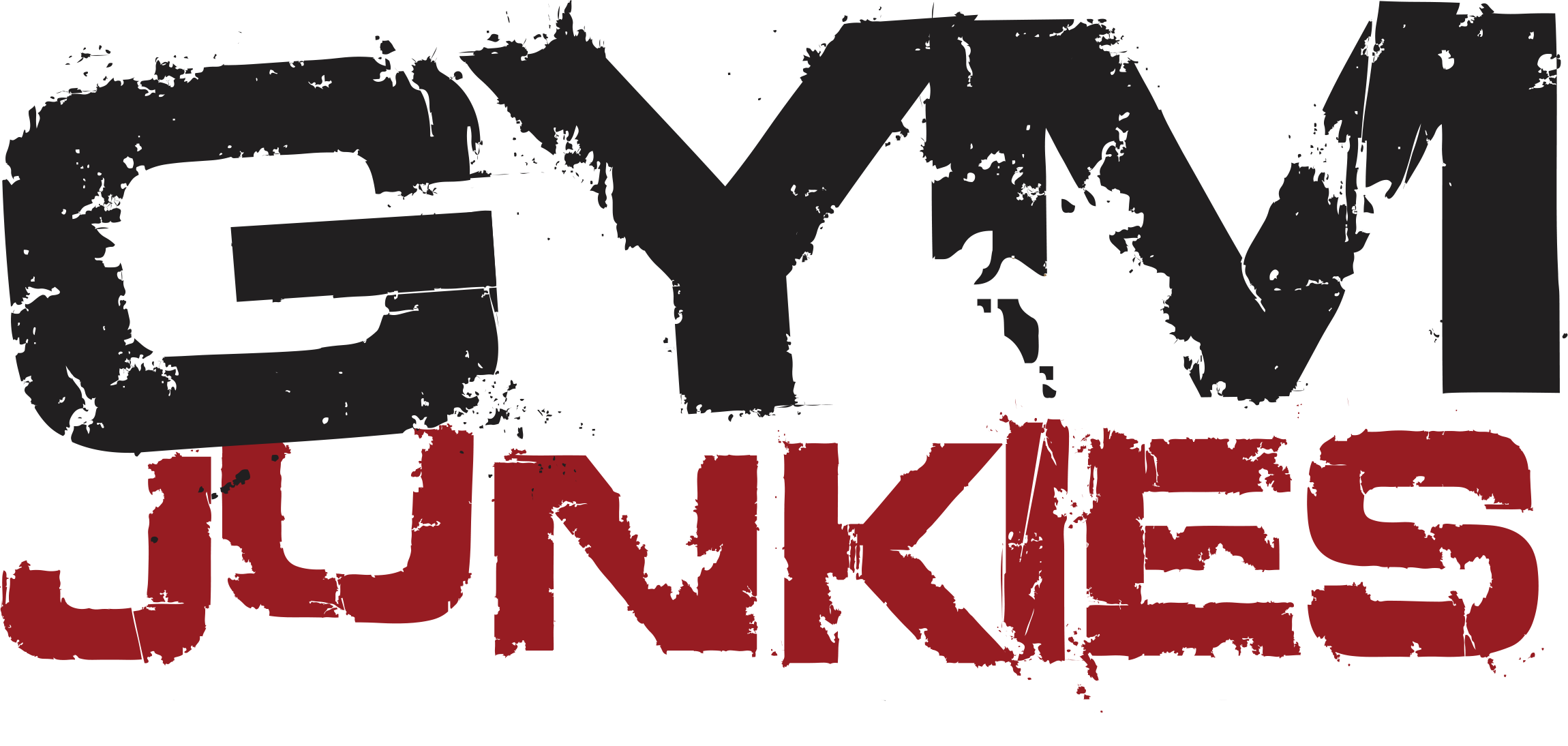
The debate about high carb or high fat is never-ending in the fitness world. Some preach about carbs being necessary, while others say we do not need them because they are not essential macronutrients. In this article we are going to look at the differences between these diets, in regards to building muscle. We are considering this with the same amount of calories in mind for both scenarios.
Carbs vs. Fat for Performance
Our bodies are able to burn glucose much faster than they are able to burn fat. Meaning, your body can produce much more energy with glucose than fat. Therefore, carbohydrates will be preferable over fats for high-intensity workouts.
Because our body burns glucose much faster than fat, it will generate much more adenosine triphosphate (ATP) with carbs than fats. This is the case whether it is glycogen from our glycogen stores, glucose in the blood, or glucose from the liver.
ATP is a molecule with energy our cells use to operate. The molecule uses the energy we gain from breaking down food, and delivers it to run other cellular processes.
Eating Excess Carbs or Fats
When we are in a caloric surplus, we can easily eat a little too much food for our energy demands. If we consume carbohydrates past our energy demands, they have the potential to be stored in our glycogen stores. Of course, once the glycogen stores are full, they can be stored as fat.
Fats on the other hand, will always be stored as fat no matter what, if we eat in excess of our energy needs. Thus, we have more room to work with when we are eating carbohydrates compared to fats, in a caloric surplus.
When we workout, especially at a high-intensity which often is the case when we are trying to build muscle, we are definitely burning glycogen. By having a little more carbohydrates than is needed for our energy, allows us to refill glycogen stores. Which in turn helps us with recovery, and our workouts for the next few days.
Carbohydrates Can Be More Anabolic

When we eat large amounts of carbohydrates, insulin can be very anabolic. From the moment we digest carbs and they enter the bloodstream as glucose, our blood sugar levels will rise. Thereby, the pancreas will produce insulin. Which is a hormone that makes our cells absorb the blood sugar either energy or store it.
Anabolic simply means the building of current muscle cells and expansion of new ones, using protein and nutrients. Catabolic on the other hand, means muscle breakdown.
Insulin has the ability to be anabolic in the sense that it can activate m-tor and other pathways to stimulate protein synthesis. This is not the case with fats. In other words, eating large amounts of fats will not potentially be as anabolic as carbohydrates can be.
Protein Synthesis
In looking at the protein synthesis process, there are a lot of factors involved. Simply signaling the m-tor pathway will not do it. In the same way, you might have heard fitness gurus tell you to take several grams of leucine to activate protein synthesis.
Truthfully, this is only the switch button for the protein synthesis process. There are other things involved for it to be able to even activate.
For instance, it is necessary to have enough amino acids in the bloodstream. Additionally, having full glycogen stores is vital for protein synthesis to take place.
Protein synthesis requires energy, or as we called it ATP, for it to take place. Therefore, it is important to have enough glycogen available in the storages for protein synthesis to begin. This ensures enough energy in the cells for the process to take place.
Thus, if we have glycogen in the storage, preferably being full, we have enough energy available for the cells to run the process. This is important, because sometimes the cells are not able to burn fat fast enough to support protein synthesis.
Should You Eat Carbs Before a Workout?

We have to consider whether we are in a fat loss or hypertrophy (muscle building) phase before we answer this question. When we are in a fat loss phase, we usually want to eat carbohydrates before working out. The reason being, calories are low and limited, and we need to be meticulous with our nutrient timing to improve our performance.
During a fat loss phase, it is best to eat our carbs before, during, and after training to make sure we are using these carbohydrates for training and not energy.
This way we are making sure that our body mostly uses fat for energy when we are not working out.
Carbs in Hypertrophy Phase
Like we talked about earlier, when we are in a hypertrophy phase, we want to take advantage of insulin. Therefore, we want to eat most of our carbs during and after training, in addition to in the meals after that.
By placing most of our carbs during and after training, we are doing as much as we can to assist with the anabolic processes.
When we are building muscle, we should not be worried about eating carbs before our next workout. This is because our glycogen levels should already be high in our muscles and liver.
If you need carbs before working out in a hypertrophy phase, your overall diet is most likely not optimal.
However, there are a few species who need an insane amount of carbohydrates. We are talking 500-800 grams every day. For these people, we probably want to add in carbs in every window we can. This is to ensure that we work around both appetite and digestion. Eating too much at once can lead to digestive issues.
Too Many Carbs Pre-Workout

If we eat way too many carbs before our workout, we can get to a point of diminishing returns. By doing that, we can actually decrease our intensity and performance in the gym by increasing insulin too much.
For instance, if you are eating a bunch of carbs before a strength workout, your blood sugar levels will be very high. In a strength workout, they do not need to be high. In a metabolic workout however, you can be fine with higher blood sugar levels.
Owing to the fact that you will actually use most of the blood sugar as it goes up, thus regulating it. More specifically, the cortisol produced from your intense workout will counteract the high levels of insulin from all the carbs.
Meaning, you will be able to maintain a high level of intensity during your workout.
Again, this portrays the importance of matching nutrition and training. If your workout session is more on the slow and heavy side, too many carbs pre-workout will likely decrease your training performance.
By spiking insulin too much, you are making the body produce a lot of cortisol to counteract the insulin spike. Now we are just pushing the body to produce much more of these hormones, and stressing the systems and sensitivity to these systems, much more than necessary.
For most of us, we would benefit more from having these carbohydrates during and after training for our muscle building goals.
Pre-Workout Carbs for Fat Loss

In contrast, this changes when we are considering fat loss, and being in a caloric deficit. We want to have pre-workout carbs in a metabolic program. The reason is to take some stress off the liver. The liver is already working hard by turning glycogen into glucose in a caloric deficit. This process is known as glycogenolysis.
The liver does this to ensure you are getting the right types of fuel for energy to your cells, where fats simply will not cut it.
It is very important that we take care of our liver’s health. The liver is vital not only for our general health, but growth hormone and insulin-like growth factor (IGF) response as well. Thus, it is critical to ensure good liver health for general health, minimize muscle loss and optimal physique changes.
We often forget to not tunnel vision in on our muscle tissue when we are building muscle and losing fat. This is a big mistake, because our organs and other systems have a big impact on our recovery and performance.
In the cases where this is forgotten, all kinds of things go wrong. We see plateaus, feeling low on energy, digestive problems, bloating issues, and sleep issues just to mention some. When we are dieting hard, both our gallbladder and stomach acid will definitely be challenged more.
Hence, having a healthy liver is important to make sure all these systems are working optimally, and assist when there is insufficiency.
Conclusion
As we can see, there is plenty to think about when considering carbohydrates and fats for our training. It is important to match nutrition to your training and goals to ensure general health and consistent progress, beyond only thinking about high carb or high fat. For muscle building, having a higher carb intake will usually be the most beneficial. For fat loss, they can also be a great tool, especially when timed around our training. Additionally, we have looked at the importance of keeping our organs and other systems healthy to avoid health issues and plateaus.
Thank you for reading our article!
– Terry Asher
Terry Asher
Latest posts by Terry Asher (see all)
- Better Family – Product Review Liquid Daily 2 oz - Dec 16, 2024
- Post-Workout Recovery: The Key to Optimal Performance - Nov 25, 2024
- Pre-Workout Supplements – Everything You Need To Know - Nov 18, 2024











[…] we wish to lose fats. However the issue is that the majority of us are very dangerous at utilizing fats for gas. Particularly when you have been consuming very dangerous meals, not exercised a lot, and […]
[…] have burned in the past. Not only that, but metabolic training will improve nutrient partitioning, glucose conservation and fat […]
[…] caloric deficit when we want to lose fat. But the problem is that most of us are very bad at using fat for fuel. Especially if you have been eating a lot bad foodsnot exercised much, and simply are in […]
[…] Source link […]
[…] we need to lose fats. However the issue is that the majority of us are very unhealthy at utilizing fat for gasoline. Particularly when you have been consuming very bad foods, not exercised a lot, and […]
[…] Source link […]
[…] Source link […]
[…] have burned in the past. Not only that, but metabolic training will improve nutrient partitioning, glucose conservation and fat […]
Thanks for this. It’s so helpful for me to build my muscle.
Thanks for this. It’s so helpful for me to build my muscle. Can you provide more posts like this?
Thanks for sharing.